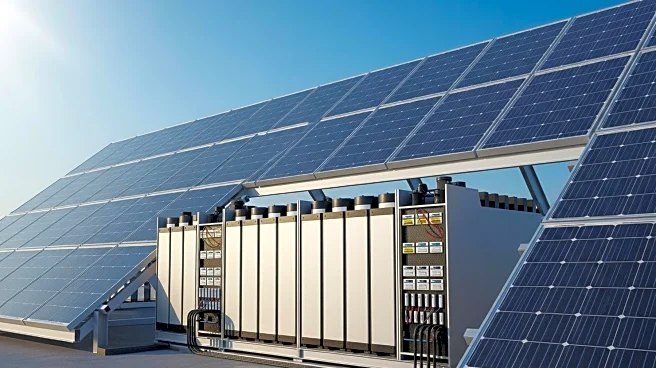What's Happening?
The U.S. Court of Appeals for the D.C. Circuit has upheld the Federal Energy Regulatory Commission's (FERC) certification of the Broadview Solar project in Montana as a 'small power production facility' under the Public Utility Regulatory Policies Act of 1978 (PURPA). This decision is significant for the solar and renewable energy industries, as it clarifies the interpretation of 'power production capacity' in relation to solar-plus-storage projects. The ruling allows developers to design projects with oversized DC solar arrays and substantial battery storage without losing eligibility for qualifying facility (QF) status, provided the inverter output to the grid does not exceed 80 MW AC. This decision follows a remand from the Supreme Court, which instructed the D.C. Circuit to reconsider the case without Chevron deference, leading to an independent interpretation of PURPA's statutory text.
Why It's Important?
The ruling provides clarity and stability for solar and storage project developers, enhancing confidence among lenders and tax equity investors. By affirming FERC's 'send-out' approach, the decision ensures that projects can maintain QF status, which includes the right to sell power to utilities at avoided cost rates. This is crucial for the financial viability of projects, especially in regions where merchant sales carry higher risks. The decision also signals potential influence on other regulatory programs and benefits, as it emphasizes the importance of instantaneous AC 'send-out' capacity in determining facility size eligibility.
What's Next?
The decision remains subject to further appeal, with parties such as NorthWestern Energy and the Edison Electric Institute potentially seeking review by the D.C. Circuit en banc or the U.S. Supreme Court. Developers and investors should continue to monitor how 'power production capacity' is treated in other jurisdictions or under other programs, as battery storage plays an increasingly significant role in renewable energy deployment.
Beyond the Headlines
The ruling may influence state-level and other federal programs, potentially affecting tax credits and interconnection rules. The dissenting opinion by Judge Justin R. Walker, which argued for counting DC power sent to batteries as part of 'production capacity,' could reappear in future cases or legislative debates, impacting how renewable energy projects are structured.








